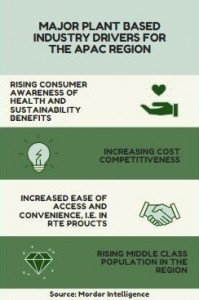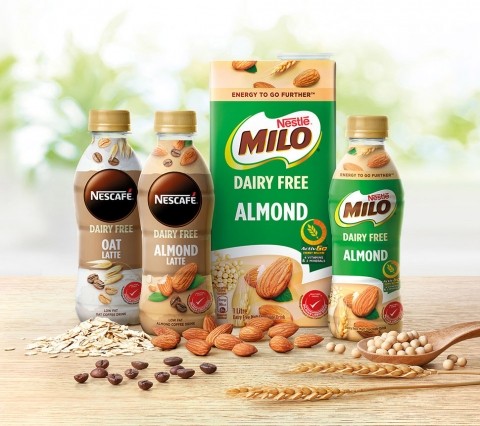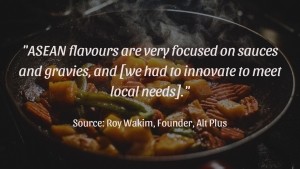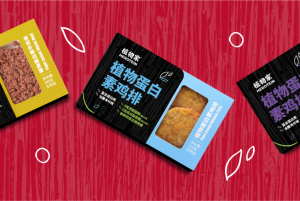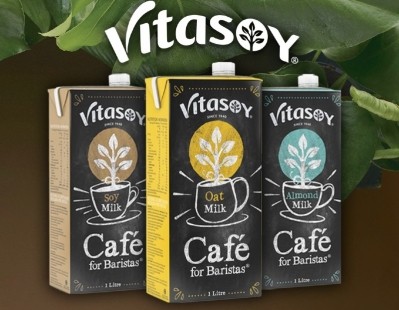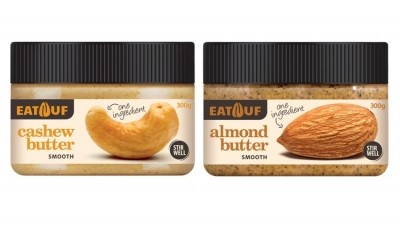FNA DEEP DIVE: PLANT-BASED PRODUCTS
Double opportunity: Why both affordability and premiumisation are providing plant-based promise in APAC
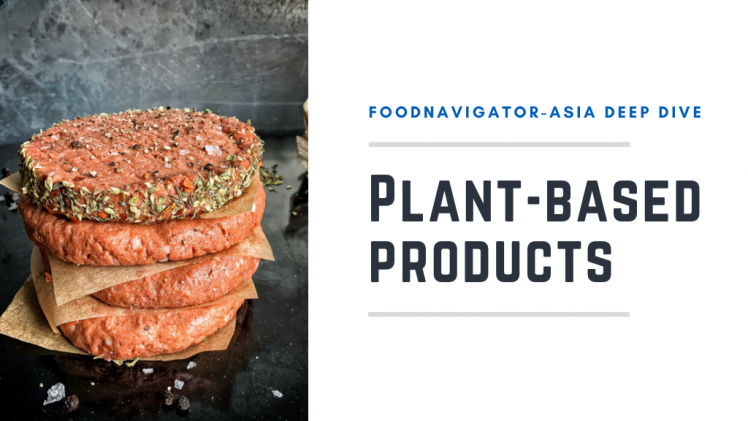
In this edition of the FNA Deep Dive, we take a look at the latest ongoing updates in the APAC plant-based sector from both ends of the spectrum, and how local food and beverage firms, both large and small, are innovating plant-based products to cater to various segments of APAC society.
The plant-based protein market in APAC is expected to see growth of almost four times between 2020 and 2030, from US$13.5bn to US$64.8bn, driven by large market demand from countries such as China as well as the wealth of product innovation available in the region, rising consumer acceptance and increasingly competitive costs.
As with any new food or beverage sector, the plant-based products industry is also seeing gradual maturation with the emergence of a variety of products targeting both the premium and affordable ends of the consumption scale.
As an example, in China which is expected to grow to become one of the world’s largest plant-based protein consumption markets over the next few years due to the sheer need for new protein sources to maintain food security, many firms are first targeting the so-called ‘low-hanging fruit’ of urban consumers with more travel experience and exposure to western culture, who would be more open to accepting plant-based products first.
“As it is, China makes up one-fifth of the global population and consumes 50% of the world’s plant-based beverages, so it is definitely going to be a very important market for the plant-based sector moving forward,” New Zealand-born China-based Christiana Zhu, Co-Founder and CEO of Marvelous Foods which operates the country’s first plant-based yoghurt brand Yeyo, told FoodNavigator-Asia.
“There is massive potential here due to both the rising middle class and an increase of awareness driven by COVID-19, making more people want to eat healthier.”
But with initial targeted population in the world’s largest country being urban consumers, it is particularly important for plant-based product manufacturers to focus on branding and premiumisation at this point in time to gain consumer recognition.
“Brand building is very important when it comes to attracting China’s urbanites – what they are looking for is the whole bundle of novelty and health and premiumisation,” she said.
“Plant-based does have the potential to tick all of those boxes, but the challenges are there to do so at the same time, as first generation products such as soy milk for example have given them an impression of plant-based being equal to less premium.”
Yeyo’s entire premise is built on plant-based yoghurt being a premium product, and Zhu is confident that premiumisation this is the way to go to target the firm’s core audience.
“Within less than a year, we now have presence in about 200 stores nationwide including well-known chains such as MUJI and ALDI and most of the high-end supermarkets, in addition to plans to hit mass market retailers as well soon, so this feels right,” she said.
Over in the South East Asian market, some firms also believe that premiumisation is an important differentiator in terms of product offerings, but not necessarily in terms of price positioning, such as plant-based meat firm Alt Plus which sells plant-based wagyu under the Waygu brand.
“We made the conscious decision to position Waygu at a much lower price than regular wagyu, some one-third of wagyu’s pricing,” Alt Plus Founder Roy Wakim said.
“[Based on this route], we are now selling Waygu in Singapore and also looking to expand markets for this to more ASEAN countries such as Thailand, Malaysia, Indonesia, Vietnam and more.”
Similarly, Malaysia’s NANKA sells its 100% plant-based patties made with jackfruit as a base at a lower price compared to its hybrid meat/plant-based products, based on the understanding that South East Asian markets such as Malaysia are in general very price sensitive.
“We do have to position our products to be somewhat more premium than regular meat patties right now, but we have a cost advantage due to an abundant supply and multiple sources of jackfruit in Malaysia and other neighbouring countries,” NANKA Co-Founder Ahmad Syafik Jaafar said.
“Given the price-sensitive nature of the local market, we have made sure that the 100% plant-based version of our patties are cheaper so as to get more consumers to hopefully try these out.”
The price-sensitive nature of the market has also resulted in a clear focus on also making affordable plant-based options to appeal to the masses, even when it comes to innovation by large conglomerates.
“Affordability is a very crucial part of our product strategy for Nestle’s plant-based product ranges, [as] it is only with the provision of good value to consumers that we are able to grow this category as quickly as possible,” Nestle Malaysia and Singapore CEO Juan Aranols told us.
“There are other plant-based products out there too which are mostly imported and more expensive, [but] we are very aware that we need to keep prices affordable so all consumers can access them, as this is the key to driving growth [for a] young category.
“Making these plant-based products accessible and affordable to the wider community can also help to support people who are wanting to eat healthier through products rich in fibre, low in fats and cholesterol and also with a better environmental footprint.”
Nestle recently launched multiple plant-based products in Malaysia inlcuding the Harvest Gourmet plant-based meat range and dairy-free Milo with almond milk as well as dairy-free Nescafe with oat or almond milk.
Watch the video below to find out more:
Taste and localisation also key
In addition to price positioning, it is also known that Asian consumers are also very much driven by product taste and local flavours, making it imperative for product manufacturers looking to flourish in this market to pay attention to these criteria.
For Waygu, the brand has already made a name for itself in markets including Japan and North America, particularly with endorsement by celebrity chef Hidekazu Tojo who is recognized by Japan as a goodwill ambassador of Japanese cuisine – but bringing the product into South East Asian markets required a whole new round of R&D and product localization.
“The ASEAN palate is quite different compared to others we have been in, so we needed to go through a few different versions to get it to one where it could work with local cuisines such as rendang curry or hor fun,” said Wakim.
“The wagyu strips needed to be thicker and wider than previous versions as ASEAN flavours are very focused on sauces and gravies, and the strips had to be a certain size to hold these, yet we also had to make sure to maintain that characteristic chewiness of wagyu beef.”
The story is similar in China, where leading local plant-based meat firm HEROTEIN had to ensure high versatility as a key characteristic of their products due to the wide variety of local cooking styles available in the country.
“As China is so large, there are so many types of cuisines available locally and Chinese consumers have a much higher demand when it comes to taste and texture – so it really is very important to avoid them trying our products and finding these to be bland, boring or hard to work with,” HEROTEIN VP of Strategy and Operations Coco Tse told us.
“There are many cooking methods and many cuisine styles that our products need to work with in this market, so we had to emphasise the versatility so that it would be convenient to use in many types of dishes.”
The plant-based meat sector also faces the challenge of being perceived as ‘lower class’ due to traditional first-generation ‘mock meats’ having landed the it with an ‘unhealthy, high-additive’ reputation.
“We use New Protein to describe all non-conventional sources of protein in China, and in general the term ‘mock meat’ is frowned upon by new-generation plant-based meat producers,” Tse added.
“The aim is also for consumers to perceive these new products from plant-based to cultured as new sources of protein to be integrated into their diets, and not that they need to make a choice to remove meat entirely.”
Beyond meat and dairy
Although the plant-based meat and dairy (milk, yoghurt) sectors are currently amongst the fastest-expanding within the entire plant-based industry, other smaller sectors are also on the rise and fast-achieving recognition.
One example is that of spreads – although plant-based spreads made with vegetable oil such as margarines have been around for a while, newer-age products include those by firms such as Freakin’ Healthy which launched a plant-based spread made with cashews earlier this year, believing this to be a good opportunity within the ready-to-eat category as well as to push for plant-based products to be really ‘clean’ and healthy.

“Many consumers are still unclear about the difference between clean plant-based foods and junk plant-based foods,” Freakin’ Healthy Founder and CEO Roy Koyess said.
“There is a misconception now that going plant-based or vegan automatically makes for having switched to a healthier diet – but this is wrong as some of these could actually be worse.
“In terms of spreads, many manufacturers opt to use things like palm oil, coconut oil, emulsifiers, sugar, preservatives, gluten or other additives for texture or preservation – we have opted to not use all of these to ensure our spreads are clean label.”
Margarines are presumed to be less healthy than butter in general due to potentially high trans fat content which could cause high cholesterol and increase cardiac disease risks.
Another category example here is that of plant-based chocolates, a currently small but fast-growing sector.
“[Similar to other plant-based categories] the key for plant-based chocolates to make our mark in the market is to focus on taste, texture, flavours and the overall consumption experience,” India-based vegan chocolates firm CARRA CEO Komal Khosla told us.
“Milkiness, creaminess and sweetness is very much a mainstay for us in India when it comes to our chocolates, so not meeting consumer expectations in any of these criteria basically means that it will be near-impossible to achieve conversion to plant-based.”
New high-end technology
Despite the widespread innovation that is already taking place within the plant-based sector, more new technology is being made available every day – for instance, in Hong Kong 3D printing firm Alt Farm has developed a patented 3D food printing technology with a nozzle enabling it to print foods with specific textures, and is planning to concentrate its use on developing 3D-printed plant-based wagyu as its first product.
“The patented nozzle enables the use of biochemical enzymatic reactions to solidify the printed product, generating different textures of prints – and our first key area of focus will be for plant-based meat products, so we’re developing the best possible fibrous texture for this meat,” Alt Farm Managing Director Kenny Fung said.
“Plant-based products are our first target because of the very fast growth being seen here, so we believe the ongoing scale and innovation is sufficient to support our innovation here as well.
“Our first product will be a 3D-printed plant-based A5 wagyu beef steak – this will use soy, pea and algae as protein in one of the nozzle’s tubes (a ‘meat tube’), have a meaty flavouring added from another ‘blood tube’, and also a ‘fat tube’ with coconut, shea and cocoa butter.”
The firm hopes to launch its first prototype in the next 12 to 18 months.
Skyrocketing funding
Unsurprisingly, the rapid innovation within the sector has opened the eyes of many investors and large corporations to the potential of plant-based, from food giants such as Thai Union not only launching their own product line but also making significant investments in upcoming alternative protein firms worldwide.
Various alternative protein-focused firms have also emerged over the past few years, from longstanding Lever VC to the recently-established Better Bites Ventures – all of which tend to fund APAC start-ups that have not just a plant-based focus but also those in cultured and fermented technology.
A common sentiment amongst investors is that plant-based products are investments for the ‘here and now’, whereas cultured and fermented tech products are investments for the future.
“Plant-based is doing really well now and it has that cheap price point which is going to be very difficult to beat in terms of cost efficiency,” Lever VC Managing Partner Nick Cooney said.

“There are also consumers choosing this for specific taste or health reasons, so it s likely to be a mainstay for a few more decades. I believe we’ll also see the rise of hybrid products, and after some time there will also be the rise of fermented tech and cultured products.”
This sentiment was echoed by Better Bites Ventures General Partner Michal Klar.
“All of these technologies have a role to play in transforming the protein market, so we decided to support them all,” he said.
“Plant-based products are obviously here and now and scaling up fast, [whereas] it's more early for fermentation and cultivated products, but they are also gradually coming to the market, e.g. in Singapore, the first country to approve cultivated meat products.”
